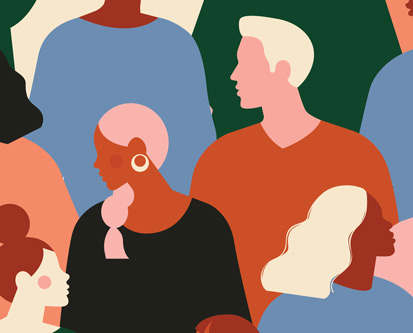Ensuring LEx is valued
Once a board recruits trustees with lived experience of the charity's cause, deeper barriers may need to be addressed to ensure their voices are fully heard as part of evidence based decision making.
Ensuring lived experience is valued in decision making
Through our 2020 lived experience seminar, we identified four possible barriers to ensuring that lived experience of a charity's cause is valued in evidence based decision making. Each of these is outlined in more detail below, through insights from contributors to this CCE knowledge exchange, in their own words.
Seminar insights: four possible barriers
Lack of preparedness and strategic thought
- Don’t assume just because people are brought in for their lived experience that they won’t understand finances etc.
- Where does a lived experience trustee go for support? Support is often very short term (a quick induction).
- Often there can be a high drop off rate of new lived experience trustees (and then the board says, or infers, ‘we tried this once and it didn’t work out’). We need to create the conditions for success; we need to track the impact the additional insights are making on the decision-making process.
- We put the burden on the person joining when in reality it is the rest of us that have to change.
Culture and board climate
- Other trustees may be uncomfortable with having someone who has clearly had such different life experiences.
- It is about transferring power, and some feel that it won’t work.
- We don’t think about how we receive what people say and respond to it; sometimes we don’t want to hear.
- Ask ‘how participatory are we as a board?’; there is often no space for ‘this is what I can bring’, rather people are put into boxes (ie. they are the ‘parent trustee’ etc).
- The focus can be on the ‘how’ and process in board meetings, rather than the ‘why’ and the ‘what’ which will be of much more interest to people with lived experience.
Tokenism
- It’s being asked ‘what do young people think?’ just because you are a young person!
- It’s bringing in a trustee to address only one issue.
- It’s ‘labelling’ of potential trustees, eg. someone with a criminal justice background, feeling potentially judged by other trustees.
- Diversity initiatives can be seen as tokenistic (‘we are under-represented in x and z’). Is the need for just, eg. a BAME trustee, rather than one who also has certain other skills? Ask yourselves, is a vacancy left open if the skill gap need is still not met?
Structural and practical barriers
- How the organisation was set up - the governing document needs to enable the decision.
- Meetings practice: the timing of meetings, the expense of getting there (and difficulties in claiming expenses).
- Practical issues such as insurance cover when recruiting people with different backgrounds eg. where they have a criminal conviction.
- We tend not to appreciate the importance of capturing impact and telling the stories of individual beneficiaries and the work that the charity has done to date; lost opportunity of attracting potential trustees who don’t have that knowledge or information.
- We don’t adapt our processes – we still have big board packs in the same format with people who just don’t communicate in that way (eg. they’re used to having short sharp conversations on WhatsApp).
Useful links
Missed Expertise: mapping the experiences of first-time foundation trustees
This report by Eli Manderson Evans and the 2027 Partnership (March 2021) offers insights into the barriers encountered on joining a board in the sector.
The report challenges the status quo, making the case for widening participation on boards, bringing them closer to the communities they serve.
It highlights the need for boards to do work internally to address cultures and policies that have barred many talented people from thriving at board level and meant that a huge amount of valuable expertise has been missed at governance level.
The report offers recommendations, ranging from quick wins to longer-term structural changes, that will support nonprofit boards to better support and listen to the communities they exist to serve.
It articulates the huge opportunities for better governance that the recruitment of trustees with lived experience presents, showing how inclusive boards can become more reflective, transparent and equitable, and can influence the behaviour of charities and civil society organisations and inspire change beyond the sector.
‘Mind the gender gap’
Naana Otoo-Oyortey MBE is Executive Director of the Foundation for Women’s Health Research and Development (FORWARD), an African women-led organisation working to end violence against women and girls for over thirty years. In 2014 Naana gave a TEDx talk about women’s rights and FGM, and was included in the Evening Standard’s list of London’s most influential people. FORWARD, uses personal stories and supports affected women and girls on the ground by bringing together communities, developing skills and knowledge, and nurturing young women leaders of tomorrow.
Equitable leadership: exploring 'knowledge equity' with Baljeet Sandhu MBE
In this episode of the BBC Radio 4 'Positive Thinking' series, Sangita Myska talks to Baljeet Sandhu MBE about how 'knowledge equity' and reinventing leadership can make policy making more progressive. Baljeet was a pioneer of the lived experience movement in the UK and founder and CEO of the Centre for Knowledge Equity - an idea she believes can dismantle inequality at its roots by bringing together people with lived, learned and practice experience to solve the challenges of our time.
Programme first broadcast August 2021

